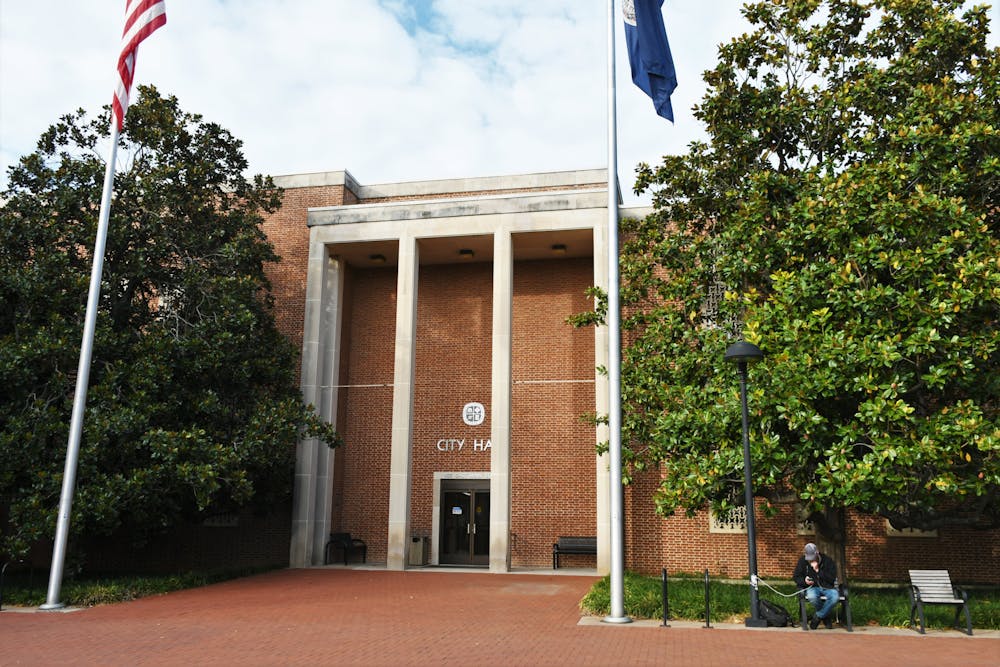Charlottesville City Council is facing a troll problem. Anonymous users virtually joined a City Council meeting last month to say racist slurs and praise Adolf Hitler. Quickly afterwards, this issue was resolved — through the removal of the virtual public comment option altogether. Virtual comment is an important feature of City Council’s hybrid meeting structure, where residents can participate in meetings over Zoom. Although City Council had decent intentions, the decision to turn the virtual option into a webinar does more harm than good — instead of a trolling problem, now, the City Council faces accessibility problems which limit the community’s ability to provide elected officials with feedback. Charlottesville City Council must reevaluate its solution to trolling in order to avoid endangering an essential platform vital to Charlottesville constituents’ voices.
After the racist and anti-semitic incidents at the public meeting last month, City Council did not wait for a second incident before they indefinitely shut down the virtual public comment option. Council members reported that they made the decision quickly because of the offensiveness of the comments and a fear of lawsuits. We cannot forget that these anti-semitic actions are happening in a city that has already been devastated by hate-filled neo-Nazis. After the Unite the Right rally — where white supremacists shouted racist slurs and praised Hitler — City Council came under major fire from counter-protestors who blamed the Council for not stopping the events that lead to the death of Heather Heyer. While online trolling cannot compare to the domestic terror of Unite the Right, history has exemplified that there is a snowball effect that links speaking hate to practicing violence. In light of this, City Council must be terrified of the pushback they could receive if trolls continue to virtually participate, and this could explain the rashness with which City Council canceled virtual public comment.
That said, this history actually makes virtual public comment even more important. In limiting free speech to shut down the voices of trolls, City Council is also shutting down the voices of those who can counteract them. People who want to raise topics and policies related to equity in Charlottesville are no longer able to do so online. Often the goal of trolls, beyond just eliciting an angered reaction, is to disrupt discourse. By banning online comments outright, the City Council has given these trolls their victory.
Not only does shutting down virtual public comment deliver a blow to free speech, but it also decreases access to an aspect of democracy that had previously been growing in popularity. While COVID-19 had its obvious setbacks, it resulted in more permanent virtual options — while City Council meetings are still in-person, there is now a permanent Zoom link that anyone can join to participate. In-person meetings in Charlottesville take place at 4:00 p.m. on Mondays at 605 E Main Street — which is in Downtown Charlottesville. This time on a Monday is hard to get to, especially if you work a job or have to stay home with children. Even though people can still virtually attend meetings, not having a virtual option to comment takes away the voice of the people who simply cannot make it in-person. Those who have the luxury of time and transportation to attend in-person meetings have the privilege to speak, while everyone else must remain silent?
Thankfully, there are other ways that City Council can go about handling the trolling problem. Plano City Council in Texas had a similar issue last year where a well-known City Council troll would come to in-person meetings. Instead of shutting down their open mic, Plano City Council decided to remove people who were not following Plano City Council’s rules of decorum. There is no reason that Charlottesville City Council cannot do the same virtually. As someone who has written about antisemitism before, I am deeply upset by Nazi trolls invading City Council meetings, but like Plano City Council, I know that we cannot be satisfied with simply shutting down all voices.
Instead, hire a moderator to uphold decorum and implement a verification process to stop anonymous, non-resident participants from entering and disrupting City Council meetings. Charlottesville Mayor Lloyd Snook’s explanation for the removal of virtual public comment — which was that City Council “struggled for a while in trying to figure out what we could constitutionally do and concluded there was not really a good answer” — is not good enough when other cities have figured out how to effectively deal with trolls without silencing the voices of citizens who wish to meaningfully engage in their democracy.
If the City Council continues to indefinitely deny citizens virtual public comment, they are doing the Charlottesville community a disservice. Virtual public comment is an amazing tool for increasing civic engagement and allowing more voices to be heard. Getting rid of this tool moves our democracy backwards by limiting access to critical engagement with City Council members. There is also no guarantee that trolls will not simply start to attend City Council meetings in person, meaning that this solution could merely inflame the problem. City Council must come up with a plan that allows meetings to run smoothly without endangering free speech and limiting access to public comment. The goal should not be to end trolling at all costs — it should be to make sure that the ideas and concerns of citizens are heard.
Mikayla Havison is an Opinion Columnist who writes about University life for The Cavalier Daily. She can be reached at opinion@cavalierdaily.com.







